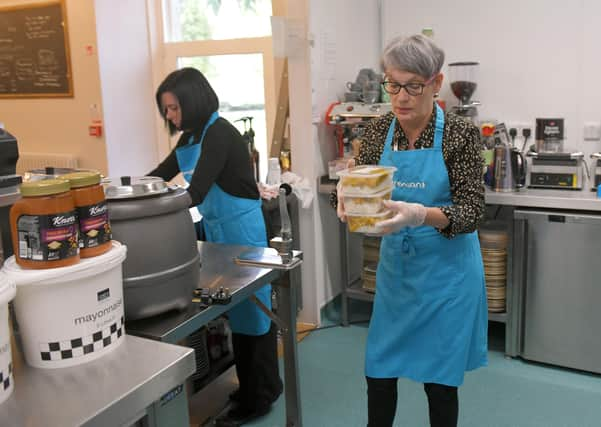In this moment of crisis we can break from the past to reimagine the world – Dr Hock Tan


Just four months ago I started a lecture to Business Management with Entrepreneurship students by quoting Charles Dickens’ most memorable opening lines.
A Tale of Two Cities begins: “It was the best of times, it was the worst of times, it was the age of wisdom, it was the age of foolishness, it was the epoch of belief, it was the epoch of incredulity…”.
Advertisement
Hide AdAdvertisement
Hide AdFine words, and ones which hopefully helped students get swiftly engaged with their first class on business strategy and sustainable development on a cold day in early January.


Who could have predicted then, that this juxtaposition of prosperity and despair, hope and joy on one hand, despair and suffering on the other, would be real for so many by March? People struggling under the weight of economic decline on the one hand, and the rich enjoying opulent lives under lockdown in their deluxe yacht on the other.
It is not all doom and gloom though. I see a shift in society when communities come together, with a realisation that the pandemic has had a direct impact on everyone’s lives – work, study, faith and family.
This pandemic has also given us a flavour of what the environment will be like in a low-carbon future. The shutting down of industrial activities, cancelled flights and other travel have slashed greenhouse gases and air pollution around the world. The skies are clearer, wildlife is returning to pollution-free waters, and bears meander around empty lodgings in national parks. Will this be the start of a concerted effort to decarbonise and enjoy more of the benefits of what our natural environment has to offer?
Covid-19 has actually given us the motivation to chart a different course – for the environment, for humanity and even, closer to home, in the way our university interacts with and supports the worlds of business and enterprise.
We are all still trying to understand what hit us. It is a virus, we know, but a virus that is challenging all our values and beliefs – our essential way of life. It has forced the formidable to stoop and caused our human activities to grind to a halt like nothing else could.
However, in a moment of crisis, we can break from the past and reimagine the world anew. It is an opening between one vision of humanity and the new dawn. My hope is that the next generation – the future game-changers, including the inspirational students I’m proud to teach – “seize this moment”, rather than long for a return to ordinariness: carpe diem.
In collaboration with Edinburgh Napier’s start-up hub, Bright Red Triangle, The Business School has been proactive in building on our established links with social enterprise, the business community and the public sector. In 2019, Edinburgh was named the first UK member of Cities Can B, a bid led by Edinburgh Chamber of Commerce with other stakeholders including ourselves.
Advertisement
Hide AdAdvertisement
Hide AdThe programme delivers solutions to community-led initiatives from the grassroots up, drawing on expertise and resources from city stakeholders, including Edinburgh Cyrenians – who within days of the lockdown had organised meals for more than 200 homeless citizens.
The Business School’s alumni from the Destination Leadership Programme, run on behalf of Scottish Enterprise, is working with furloughed professionals from tourism businesses to help the sector survive lockdown and prepare for what will follow.
Our academics in Tourism, Hospitality, Events and Festivals will run the next online course for “Understanding Data in Tourism” this month, free on the FutureLearn platform, and our colleagues in HR have released the latest in a series of Reflective Papers, on recruitment in the voluntary sector. These and other initiatives can be followed on blogs.napier.ac.uk/tbs with a weekly item from one of our academic staff on an issue related to Covid-19.
Edinburgh Napier is an applied university, with strong industry links, and the Business School is focused on the academic study of business for business, rather than about business. The School is committed to preparing students for the future of work, and empowering them with real opportunities.
Likewise, we are supporting business towards sustainable development goals. To build capacity for this, we have launched the “Business for Good” research and enterprise thematic area. In these challenging times, colleagues from across the School have already hosted the first in a series of online discussions with leading investors, philanthropists and social enterprises, looking at how bridges can be built between ‘business for purpose’ and the investment community – referred to as impact investment – and the initial talks have been very well received by all parties.
We plan other events open to our students and the general public to support and stimulate innovation post-Covid-19 and the opportunities to support our local communities and reduce our carbon footprint. Visit blogs.napier.ac.uk/tbs for regular updates, or follow us @ENUBusSchool
Dr Hock Tan, Co-Lead, Business for Good Thematic Area, Edinburgh Napier University Business School
Comments
Want to join the conversation? Please or to comment on this article.